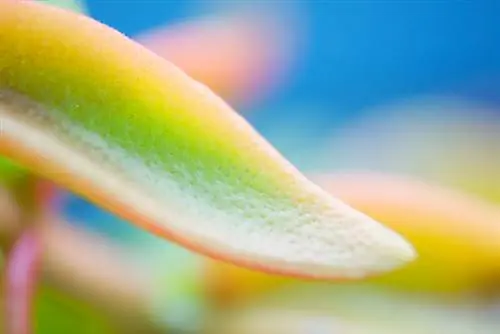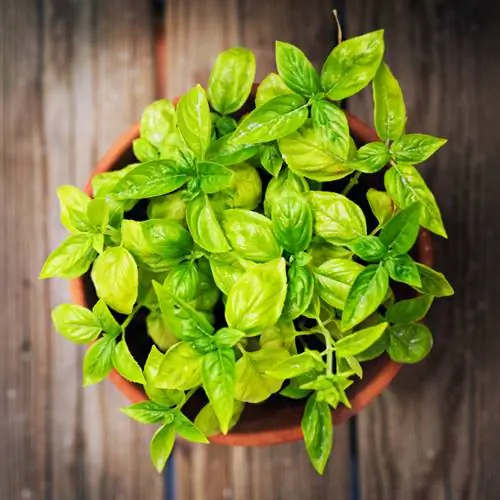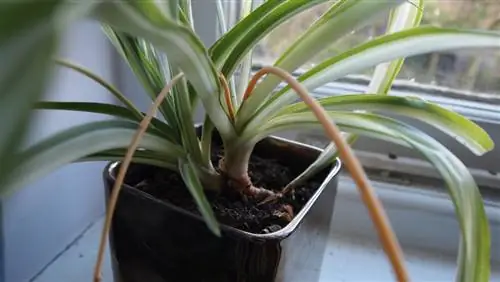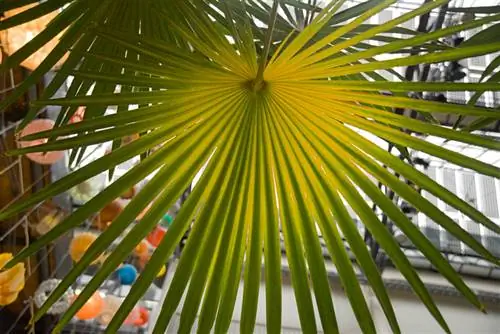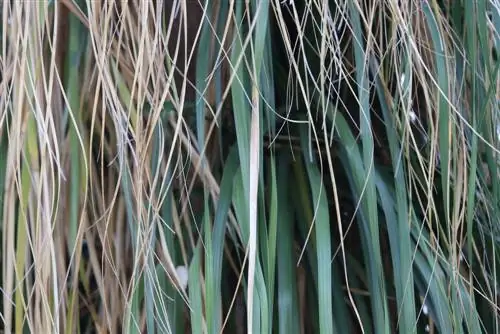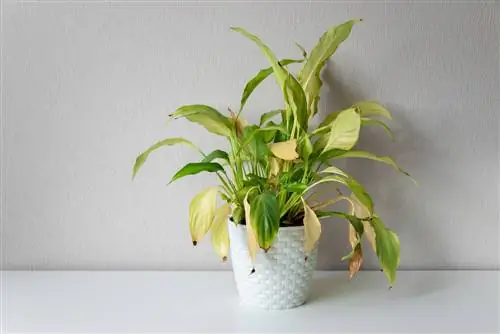- Author admin leonars@hobbygardeners.com.
- Public 2023-12-16 16:46.
- Last modified 2025-01-23 11:20.
Under suitable location conditions, all types of agave actually require very little care. If the leaves of the agave turn yellow in certain places or as a whole, there can be various reasons.
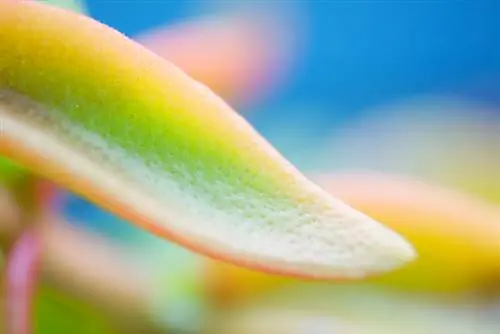
What are the causes of yellow leaves on agave plants?
Agaves usually get yellow leaves due to waterlogging in the substrate or unsuitable location conditions. To correct the problem, they should be repotted and planted in a well-drained potting soil. Increased watering or fertilization is not recommended.
Agaves like it dry and light
As succulents, agaves originally come from similar regions as various types of cacti, so they usually cope well with drought due to the water stored in the leaves. It would therefore be a mistake if the plants were watered (or fertilized) more if they had yellow spots on the leaves. In general, agaves can be differentiated between yellow leaf tips and partially wilting leaves at the base of the plant. It is quite normal for the oldest leaves to initially turn yellow before they dry out completely and can be cut off.
Be careful when repotting and propagating
A trap lies in wait for all hobby gardeners when caring for agaves when they are repotted or propagated. In contrast to many other plants, the agaves should under no circumstances be watered immediately after:
- they were repotted
- Roots were injured
- the offshoots called Kindel were cut off
All cuts and open wounds on the agaves should be allowed to dry for about two to three weeks before they are watered again.
Tip
It is often simply due to waterlogging in the substrate when agaves get yellow leaves and start to rot. They should then be placed in potting soil mixed with lava stones (€16.00 on Amazon), pumice gravel or quartz sand and kept very dry, especially in winter.

